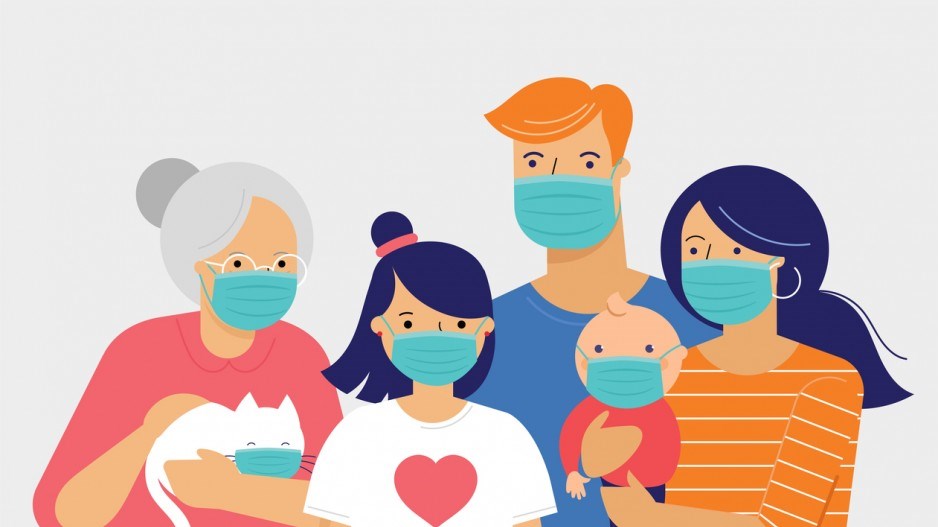Many Canadians are having trouble picturing just what daily life will look like when the COVID-19 pandemic ends.
Over the past few weeks, Research Co. and Glacier Media have looked into various topics, such as the future of work, the response in other countries and the views of residents on easing lockdown restrictions. This time, Canadians were asked to predict an end to the impasse.
Across the country, only 23% of Canadians expect things to go back to the way they were before the outbreak by the end of October. About one in five (19%) foresee this milestone arriving some time in November or December, while almost half of Canadians (48%) point to next year.
Canadians aged 55 and over are more likely to look at 2021 when pondering when the state of affairs will be similar to how it was before the pandemic, compared to 49% of those aged 35 to 54 and 41% of those aged 18 to 34.
Ontario and Quebec are the only regions where fewer than half of residents foresee the state of affairs improving drastically after the end of 2020 (46% and 43% respectively). Majorities of those who reside in Atlantic Canada (55%), Saskatchewan and Manitoba (53%), British Columbia (also 53%) and Alberta (52%) are not anticipating a sudden miracle.
There are also lingering doubts about entertainment and labour. When Canadians are asked when they will be able to attend or host a large gathering, only 19% foresee doing so before the end of July. More than a third (36%) expect this in August, September or October, and 10% believe it will materialize in November or December. More than one in 10 (12%) do not think a large gathering will be feasible until January 2021.
Canadians believe the home office will end sooner, with 28% believing regular workplaces will once again be full of employees by the end of July. About a third (32%) think this will happen from August to October, while 14% predict this from November to January.
Few Canadians see themselves returning to their workplaces full time or holding large gatherings quickly, but some provinces have hinted at the creation of “family bubbles,” which would allow two households a chance to socialize and interact as the COVID-19 pandemic continues.
In spite of the immediate relief that the opportunity to re-establish physical contact with relatives or friends could bring, Canadians are divided on the concept of “family bubbles.” While more than two in five (44%) believe allowing two households a chance to socialize and interact during the COVID-19 pandemic is a good idea, more than a third (35%) disagree and one in five (21%) are undecided.
There are enormous differences across the country when it comes to the introduction of “family bubbles.” In Quebec, the first province to outline some preliminary dates for reopening the economy, more than two-thirds of residents (68%) welcome this idea.
The proportions are drastically lower in other areas, including Ontario (40%), British Columbia (39%) and Atlantic Canada (37%), Alberta (25%) and Manitoba and Saskatchewan (18%).
But even as most Canadians are not convinced that “family bubbles” are the right course of action at this stage, more than four in five (82%) say they would take advantage of the opportunity to join one if their province allows it.
With relatives scattered across various municipalities, and several friends who share similar interests, choosing who to bundle with will not be an easy decision. Only half of Canadians (50%) say they know exactly which household they would ask to become part of their “family bubble.” This leaves one out of every two Canadians having no clear idea of who would make their lockdown more bearable.
As most of the country heads into the ninth week of isolation, more than two-thirds of Canadians (68%, down just four points since the first time we asked in March) believe the worst is still ahead of us when it comes to COVID-19, while one in four (24%, up two points) think the worst is behind us.
Canadians are not convinced that the crisis has ended. Over the past few weeks, our polling has been consistent in showing that the craving for bringing back some of the elements of our daily lives has been lessened by a desire to move gradually and not destroy all that has been accomplished so far by following social distancing guidelines. Even on an issue as potentially rewarding as a “family bubble,” the public is not wholeheartedly confident. •
Mario Canseco is president of Research Co.
Results are based on an online study conducted from May 4 to May 6, among 1,000 adults in Canada. The data has been statistically weighted according to Canadian census figures for age, gender and region. The margin of error, which measures sample variability, is plus or minus 3.1 percentage points, 19 times out of 20.




